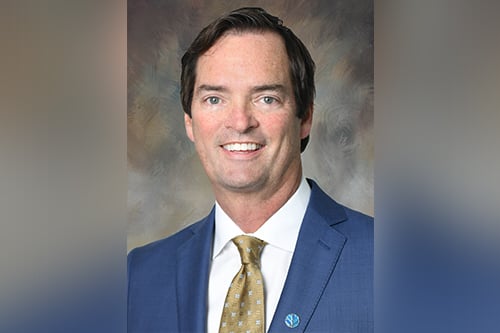Head from Angel Oak on why so many originators are already studying up on non-QM products

The non-QM space was tested in 2020. Like so much of the economy, and so many subsets of the mortgage and housing market, the COVID-19 pandemic lashed non-QM like a storm. But the strongest non-QM players came through that storm and ended the year strong. Now they’re looking at a 2021 likely driven by a record purchase market knowing that for mortgage originators, non-QM is a tool they’re going to need to use.
To get a sense of the year ahead for non-QM, MPA spoke with Tom Hutchens (pictured), executive VP of production at Angel Oak Mortgage Solutions, one of the nation’s pre-eminent non-QM lenders. He explained why non-QM is currently experiencing a resurgence he expects to last into 2021. He highlighted, in addition, that as the refi boom tails off and purchase drives the market again, non-QM knowledge could help mortgage pros stand out from the crowd in a likely competitive 2021 market.
“Non-QM survived the pandemic,” Hutchens said. “We went through the great pause in 2020 with no guarantees of where that future was going to take us. But lots of lenders are back in the business, including Angel Oak. Now we’re seeing record interest in non-QM.”
Hutchens cites a recent Angel Oak webinar’s “record” attendance as an indicator that originators are already working to incorporate non-QM products into their 2021 pipeline. These originators, Hutchens explained, are getting ahead of the curve. 2021 is expected to be more of a purchase market than 2020 and, with refis drying up, originators could see their volumes fall by more than half. The only way he sees them making up that volume is by capturing more purchase business and non-QM allows them to capture borrowers that would fall outside the strict parameters of agency loans.
Read more: What does the stimulus deal mean for mortgage?
Hutchens stressed that while non-QM takes some education, it’s a highly reliable product set that originators should trust.
“If an Angel Oak account executive tells you we can close this loan, you can count on that as a true statement,” Hutchens said.
He emphasized, too, that while non-QM takes education, it’s no harder to master than an agency loan. They follow the same principles but use slightly different income variances.
For originators looking to rebuild referral pipelines from real estate agents, Hutchens believes non-QM could be a difference maker. Stressing how good you are at agency or FHA loans doesn’t set you far apart from a crowd of originators who are all pretty good at that product set. Non-QM doesn’t have the kind of saturation, and knocking a non-QM deal out of the park for a real estate agent could, in Hutchens’ view, win you their next agency-qualifying client as well.
Read more: Strong fundamentals set bullish tone for US housing market in 2021
Just as non-QM could be a difference-maker for an originator with their referral partners, Hutchens said that failing to grasp the product set could pose real risk for an originator. If your regular real estate partner comes to you asking to get a non-QM closed and you say you can’t do them, that agent is going to your competitor. That is a risk that Hutchens believes originators cannot take in 2021.
“It just has to be a part of your offering,” Hutchens said. “It’s never going to be 100% of your product base, but it needs to be a portion of it. It’s got to be something that you, as an originator, are familiar with. You should be comfortable and confident that you can get a non-QM loan closed.”



